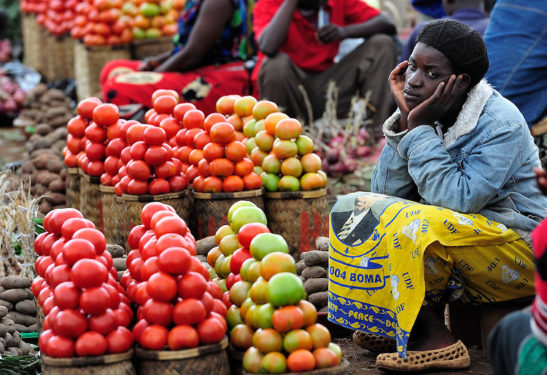Ghana’s surprise uptick in inflation may see rate hikes return
The central bank’s monetary policy committee on May 22 paused its steepest phase of monetary tightening that was aimed at reining in inflation and halting a slide in the cedi. It kept the key rate that had more than doubled in 16 months unchanged at 29.5% on expectations that inflation would continue slowing.
- Advertisement -
Ghana’s inflation rate unexpectedly rose for the first time in five months in May as food prices soared, adding pressure on the central bank to resume rate hikes next month.
Annual price growth quickened to 42.2% from 41.2% in April, Government Statistician Samuel Kobina Annim told reporters Wednesday in Kumasi, the nation’s second-biggest city. None of the eight economists in a Bloomberg survey expected an acceleration. Food inflation turbocharged to 51.8% last month from 48.7% in April and non-food price growth decelerated to 34.6% from 35.4%. Prices rose 4.8% in the month.
- Advertisement -
New taxes and food seasonality contributed to price growth, said Annim. Fuel prices also rose marginally despite the relative stability of the cedi against the dollar, he said.
- Advertisement -
The central bank’s monetary policy committee on May 22 paused its steepest phase of monetary tightening that was aimed at reining in inflation and halting a slide in the cedi. It kept the key rate that had more than doubled in 16 months unchanged at 29.5% on expectations that inflation would continue slowing.
- Advertisement -
Governor Ernest Addison said after the meeting that the central bank’s tight monetary policy to mop up excess liquidity, a stable cedi, cheaper fuel prices and adhering to the conditions of a $3 billion International Monetary Fund bailout clinched last month should allow for a faster ease in inflation toward its 6% to 10% target band.
Managing Director Kristalina Georgieva said in a statement when the deal was sealed that “the Bank of Ghana will continue tightening monetary policy until inflation is on a firmly declining path and will eliminate monetary financing of the budget.”
The Ghanaian cedi weakened 0.4% to 11.35 against the dollar at 10:35 a.m. in the capital, Accra. The yield on Ghana’s dollar bonds maturing in 2032 rose marginally to 24.4%.
Source: Norvanreports
- Advertisement -


